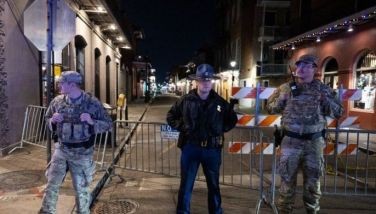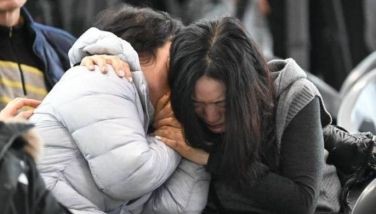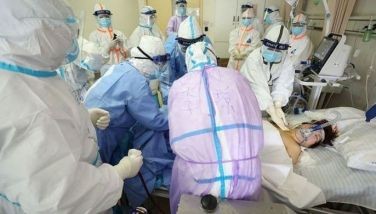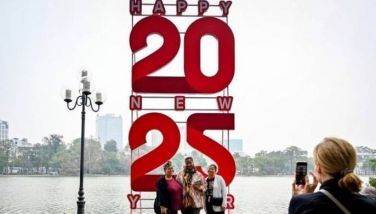Lebanese trade accusations over Saudi aid suspension
BEIRUT — Lebanese politicians traded accusations yesterday over the decision by Saudi Arabia to halt deals worth $4 billion aimed at equipping and supporting Lebanese security forces, adding to tensions in the deeply divided country, which is struggling with the fallout from neighboring Syria's civil war.
The decision was announced by Saudi officials Friday in retaliation for Lebanon's siding with Iran amid the Sunni kingdom's spat with the Shiite power. The Gulf Cooperation Council backed the Saudi decision, raising concerns it could have repercussions for thousands of Lebanese living in Gulf countries.
The small Mediterranean country has a sectarian divide that reflects the wider regional split between Sunni and Shiite powerhouses Saudi Arabia and Iran, and has long been a battlefield where the region's proxy wars play out. The Saudi announcement immediately prompted sharp accusations among Lebanon's notoriously fractious party leaders.
Former Prime Minister Saad Hariri, a key ally of Saudi Arabia, blamed the suspension on the Shiite group Hezbollah and its Christian ally, the Free Patriotic Movement.
"Fiery statements offending the Kingdom are rejected and do not represent the policy of Lebanon," he said after a meeting with the Sunni grand mufti on yesterday.
The foreign ministry, which is headed by FPM leader Gibran Bassil, shot back in a statement, calling such accusations "cheap attempts at political exploitation."
The Saudi decision came after Bassil declined to support Saudi resolutions against Iran during two meetings of Arab and Muslim foreign ministers. Bassil is the president of the FPM, which is one of the strongest allies of the Iran-backed militant Hezbollah group.
Saudi Arabia and Iran are longtime rivals who back opposite sides in the wars in Syria and Yemen. Relations took a turn for the worse at the start of the year, when Saudi Arabia executed a prominent Shiite cleric and protesters stormed Saudi diplomatic posts in Iran. That prompted Riyadh to cut diplomatic relations with Tehran.
The Lebanese Foreign Ministry statement recalled its condemnation of the attack on Saudi diplomatic missions in Tehran and Lebanon's long-standing policy of remaining on the sidelines of regional conflicts.
The suspended deals involve a four-year, $3 billion Saudi pledge to buy French arms for the Lebanese military and a $1 billion support deal for the Lebanese police.
In a clear reference to non-Arab Iran, GCC Secretary-General Abdullatif Al Zayani said it was "deeply regretful that Lebanon's decision-making was now hostage to the interests of a regional power, contradicting Arab national security and the interests of the Arab nation."
The six-nation bloc includes Saudi Arabia, Kuwait, Bahrain, Qatar, Oman and the United Arab Emirates.
Lebanon's daily As-Safir reported yesterday that the United Arab Emirates will deport more than twenty Lebanese nationals, giving them only 48-hour notice to leave the country. There was no immediate confirmation of the report, and it was not clear if it was related to the Saudi decision.
- Latest
- Trending
































